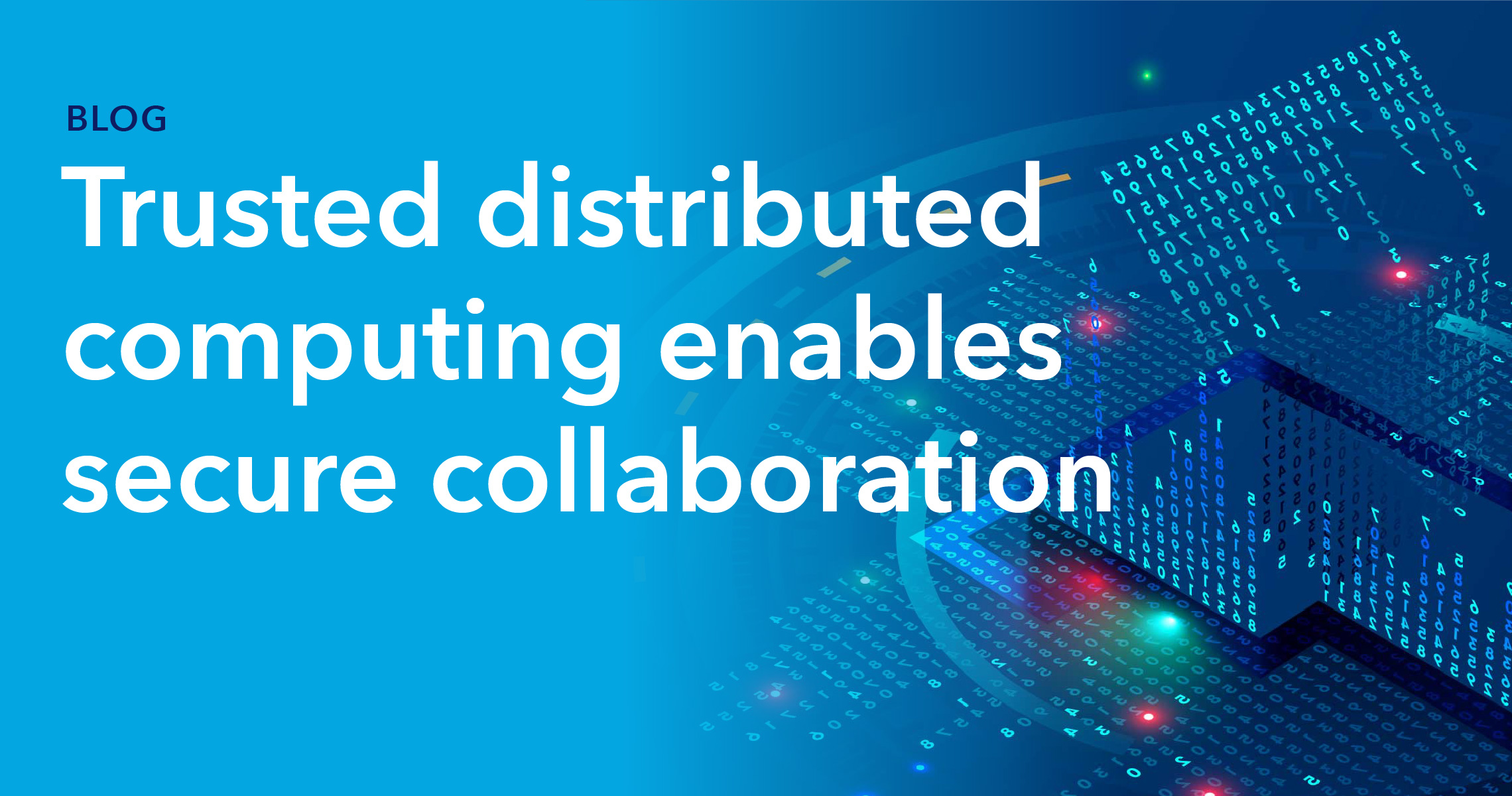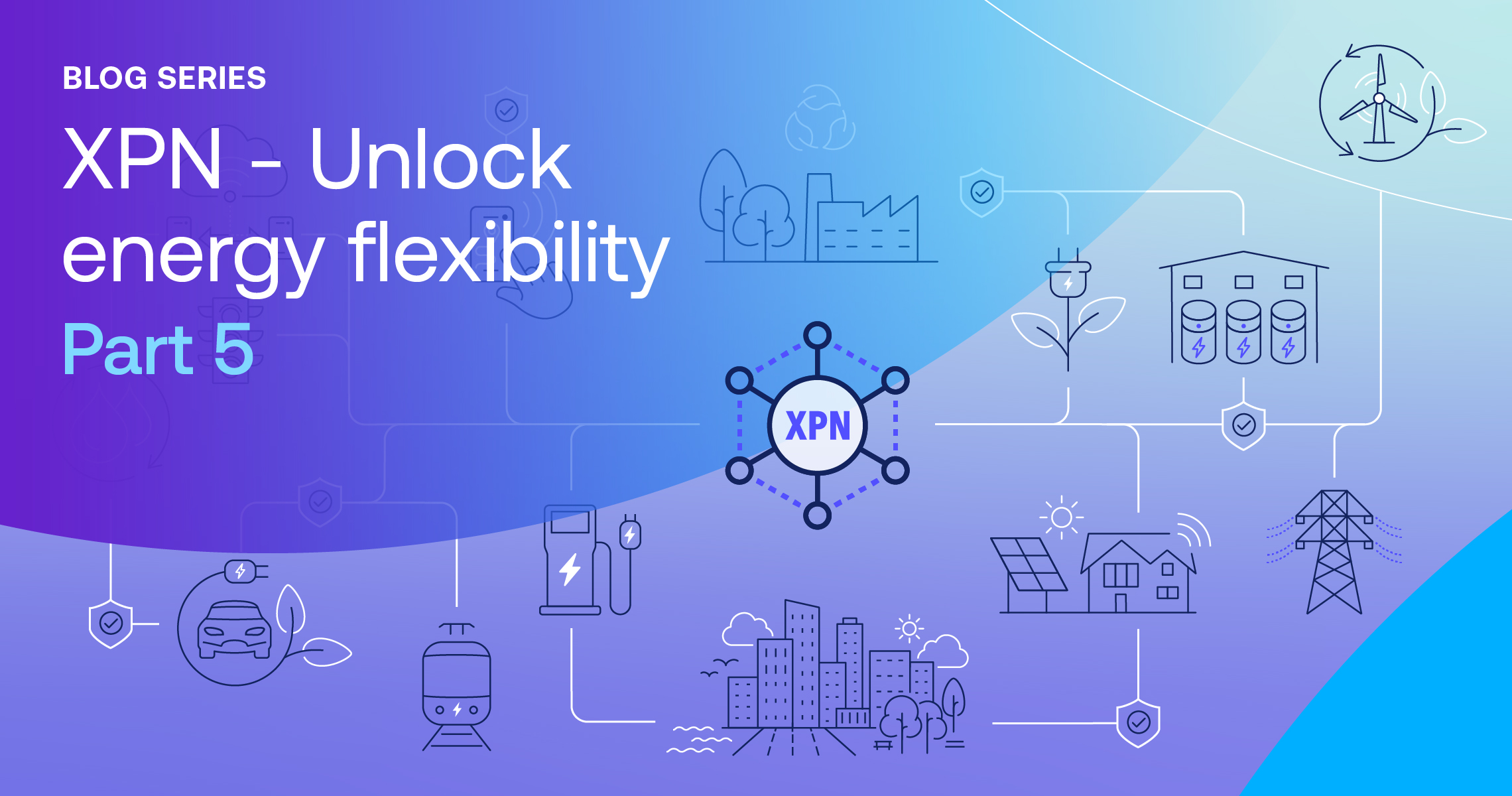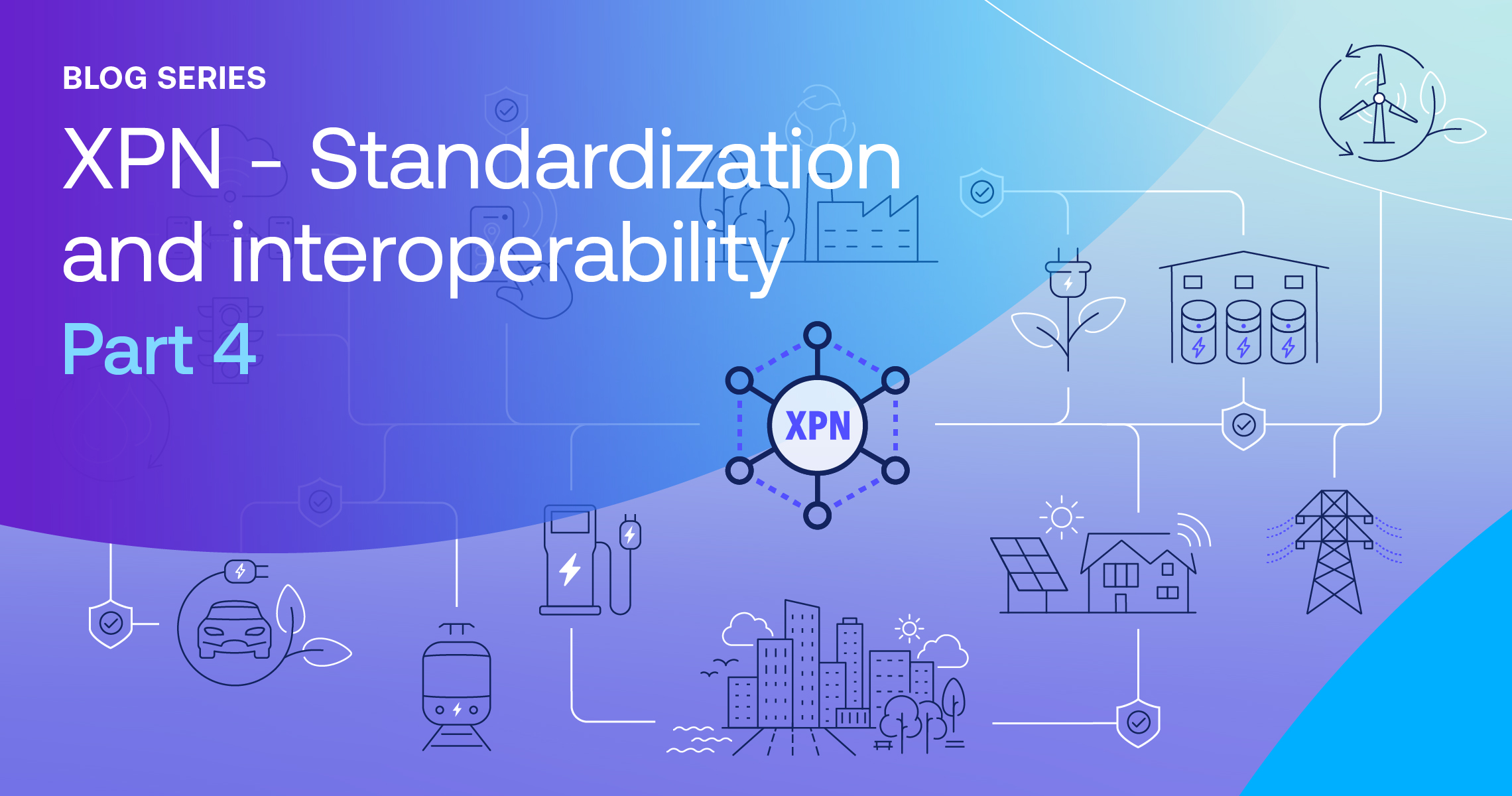Data is one of the most valuable resources in the world. The companies collecting and harnessing the most data, such as Facebook, Amazon, and Alphabet, are definitely taking full advantage of this resource. These trillion-dollar global tech behemoths are able to store and analyze their own data in-house, without needing to collaborate with partners.
Most other organizations have to rely on collaboration to open up exciting new business opportunities. We’ve written before about the benefits of secure data collaboration, including increased profitability and innovation. We’ve also discussed the challenges and security vulnerabilities around data sharing. The task of safe data collection becomes even more difficult when you take into account the projected number of Internet of Things (IoT) devices expected to be installed by 2025.
The solution is trusted distributed computing.
How trusted distributed computing works
When used effectively, data can optimize reactions and deliver substantial business value. But organizations hold data differently. Quite frequently, different types of data are siloed. Some data might be in the cloud and some might be in on-premises servers. As a result, firms that work together on a project need to combine data from different formats, types, and locations. This creates risk, both during the transport phase of data processing and while it is being held on external servers.
Trusted distributed computing works by establishing a chain of trust between servers and devices during all stages of data processing. Each stop along the data’s journey can be verified and authenticated via a network of safe points. In other words, the data is secured through the entire transmission process, By using trusted distributed computing, companies can rely on the authenticity of the data they are receiving and prevent system penetration by compromised devices or bad actors.
Why trusted distributed computing matters
Here are two real-world examples of trusted distributed computing that use Intertrust solutions for secure collaboration.
Optimizing EV charging and grid planning
When collaborating, no firm wants to give away data that could later help a competitor gain an edge. This understandably causes companies to be very wary about how they collaborate, and with whom. Trusted distributed computing allows partners to achieve a greater level of trust in what is happening to their data, as well as giving them granular access.
This particular collaboration involved one of the world’s largest distribution system operators (DSOs) and one of the world’s largest automakers, including Electric Vehicles (EVs). The DSO and the automotive OEM saw the need to work closely together to plan future EV charging network deployments. They wanted to analyze current EV geolocation status as well as examine forward-looking EV trends.
The project involved a number of complicated steps. The DSO had to reveal sensitive information about load capacity, grid information, and existing installed assets. Both partners would need to collect and blend EV/Plug-in hybrid EV data including car location, movement patterns, and EV battery charging levels. To identify clusters of high or low demand for EV charging, they would have visualize a great deal of location information. They would also have to analyze and visualize information about the vehicles themselves, such as charging status. Furthermore, they would have to overlay and blend this information with existing grid and city infrastructure data sources.
The DSO and OEM needed a secure data collaboration and data management platform that could keep sensitive data safe, and maintain GDPR protection. They turned to Intertrust. Using the Intertrust Platform, the partners are able to work securely across hundreds of data silos and clouds. The Platform acts as a secure data virtualization, data aggregation, and data collaboration layer for all the different data sources and formats.
Data sharing for utilities
We recently published a best practices guide on trusted data collaboration for utilities. Modern utilities are engaging in smart grid planning strategies to improve overall energy efficiency and reduce carbon emissions. To do this, utilities need to share data and collaborate with partners and other stakeholders within the energy ecosystem. These stakeholders include building owners, EV manufacturers, cities and municipalities, grid operators, and distribution service operators.
The trusted exchange of data with these partners allows utilities to understand their customers better and boost operational efficiency. Unfortunately, without a trusted distributed computing solution, utilities struggle to mitigate the operational and reputation risks associated with sensitive data and intellectual property. Efficiency is bogged down by cumbersome, manual processes that slow down growth. This leads to a lag in the development of new business and revenue models, affecting the bottom line.
To harness the transformative potential of their data, utilities must make data-driven collaboration simpler. They need a trusted platform to provide interoperability, streamline access, and ensure robust security. The Intertrust Platform ties together numerous capabilities important to utilities. With the Platform, multiple energy stakeholders can securely exchange and collaborate across diverse energy datasets.
Collaborate safely with Intertrust
The Intertrust Platform facilitates secure data exchanges and collaboration between organizations, allowing them to secure, govern, and monetize their data, across any cloud service or infrastructure. To find out more about our trusted distributed computing solutions, get in touch with our team today.
Editor’s note: This blog was originally published in December, 2019. It has been revised and updated.
FAQs:
- Why is data trust an important component of collaboration?
Ans: Trusted collaboration ensures that the information being accessed by all parties is secure and has full integrity. Parties can collaborate and make decisions without worry of data loss, inaccuracies, or corruption.
- What is the role of trust in business collaboration?
Ans: Trust is an essential component of business collaboration where multiple parties are sharing and accessing data. The data must have not been tampered with, as effective business decisions rely upon “good data.” In business collaboration, trust should also contain a layer of governance and data access, to ensure that only the information required for the collaboration is being accessed. This ensures privacy, security, and proper compliance.
About Abhishek Prabhakar
Abhishek Prabhakar is a Senior Manager ( Marketing Strategy and Product Planning ) at Intertrust Technologies Corporation, and is primarily involved in the global product marketing and planning function for The Intertrust Platform. He has extensive experience in the field of new age enterprise transformation technologies and is actively involved in market research and strategic partnerships in the field.




